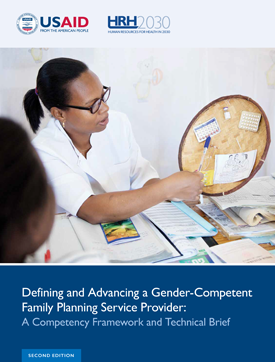In many low- and middle-income countries, health systems face shortages of qualified health workers, and decision-makers lack the data and tools needed to optimize existing resources.

Defining and Advancing a Gender-Competent Family Planning Service Provider: Competency Framework and eLearning Course .
Toolkit | December 17, 2020

HRH2030 and USAID’s Office of Population and Reproductive Health developed a global gender-competency framework and eLearning for family planning service providers to improve gender-awareness in health workers.
Around the world, gender norms influence the ability of individuals, couples, and families to meet their desired family planning needs. Provider bias and power imbalances in client-provider and client-client interactions impact the quality and accessibility of family planning reproductive health service providers who have great potential to be change agents. As they overcome biases and offer quality, gender-sensitive, transformative services, they will help all clients make voluntary and informed decisions about their family planning needs, improving both gender equality and reproductive health outcomes. HRH2030 and USAID’s Office of Population and Reproductive Health developed a global gender-competency framework and an accompanying eLearning course for family planning service providers to improve gender-awareness in health workers.
